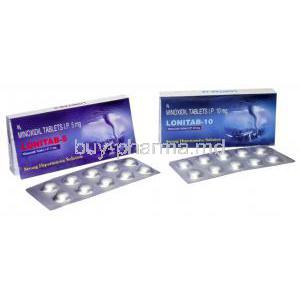Atenolol
Uses
Atenolol is used in the treatment of angina, arrhythmia, heart attack and increased blood pressure.
How it Works
Atenolol works by blocking tiny areas called the beta-adrenergic receptors, where messages sent by some nerves are received by the heart and blood vessels. Atenolol causes the heart beats more slowly and with less force. Thus leading to pressure of blood within your blood vessels to be reduced and it is easier for the heart to pump blood around the body.
Common Side effects
Patients who take Atenolol may suffer from such side effects;
Nausea,
Headache,
Fatigue,
Slow heart rate,
Breathlessness,
Diarrhoea,
Palpitations,
Abdominal pain,
Dizziness,
Constipation
Nifedipine
Uses
Nifedipine is given for the treatment of hypertension, or to help prevent angina chest pain.
How it Works
Nifedipine is known as a calcium channel blocker. Nifedipine works by causing some of blood vessels to relax and widen. This then lowers blood pressure. Nifedipine also increases the flow of blood to places like hands and feet. Nifedipine reduces the force and the rate of heartbeat, and this helps to prevent angina chest pain. Nifedipine works blocking the amount of calcium that goes into the 'smooth' muscle cells in the walls of blood vessels and in the heart. Calcium is needed for muscles to contract, so reducing the amount of calcium using Nifedipine causes the muscle cells to relax.
Common Side effects
Patients who take Nifedipine may suffer from such side effects;
Fatigue,
Ankle swelling,
Sleepiness,
Headache,
Nausea,
Dizziness,
Flushing,
Palpitations,
Edema,
Abdominal pain













